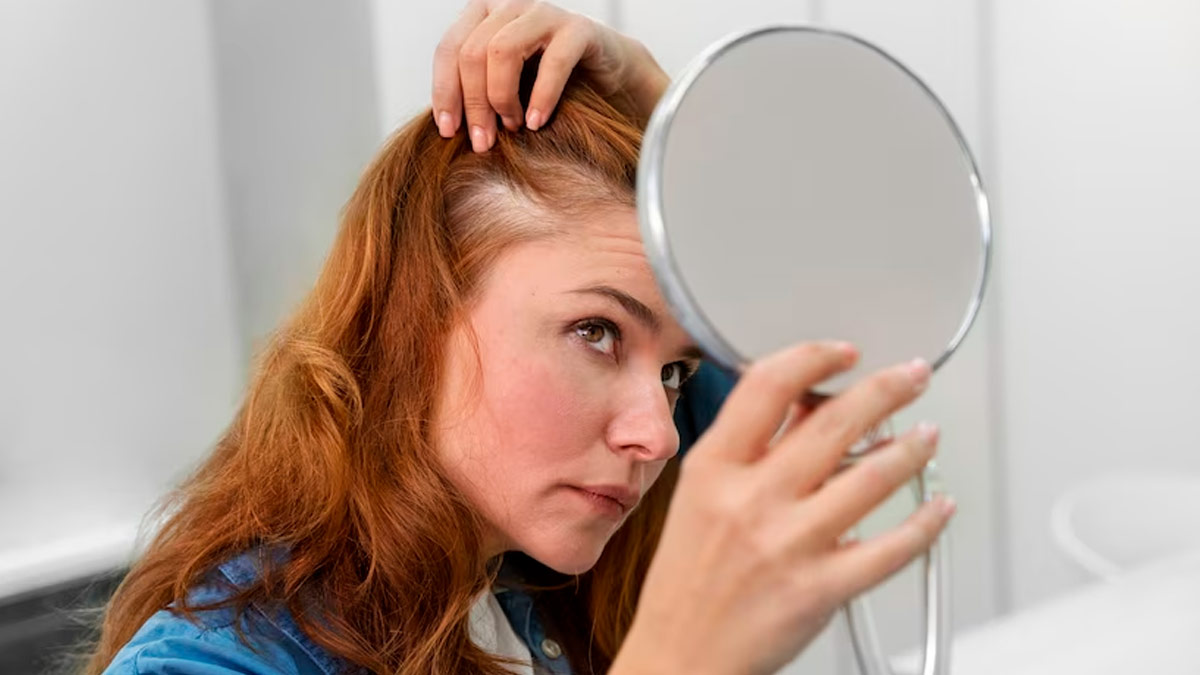
The arrival of monsoons brings relief from scorching heat but can also lead to a host of hair problems, especially for individuals with oily scalps. Excessive humidity and moisture in the air can exacerbate oil production, leaving your hair feeling greasy and weighed down. However, fret not!
Tips To Treat Oily Scalp In Monsoons
Here are some effective tips to combat oily scalp during the monsoon season:
1. Frequent Shampooing
Washing your hair more frequently with a mild, clarifying shampoo designed for oily scalps can help control excess oil buildup. Aim to shampoo at least every other day or as needed, but avoid over-washing, as it can strip your scalp of essential oils and lead to rebound oiliness.
2. Avoid Hot Water
Opt for lukewarm or cool water when washing your hair. Hot water can stimulate the sebaceous glands, leading to more oil production. Coldwater helps to constrict the pores and reduce oil secretion.
Also read: Fawning: 8 Signs You Should Look Out For
3. Use Apple Cider Vinegar (ACV) Rinse
After shampooing, rinse your hair with a mixture of water and apple cider vinegar. ACV helps balance the pH levels of the scalp, reducing excessive oiliness and promoting healthier hair.
4. Choose the Right Conditioner
If you have an oily scalp, avoid applying conditioner to your scalp altogether. Focus on applying it only to the ends of your hair to keep them nourished without adding extra oil to your scalp.

5. Tea Tree Oil Treatment
Tea tree oil has natural antimicrobial properties that can help combat oily scalp and dandruff. Add a few drops of tea tree oil to your shampoo or mix it with a carrier oil and apply it to your scalp before washing.
6. Blotting Paper or Dry Shampoo
Keep blotting paper or dry shampoo handy to dab away excess oil during the day. These quick-fix solutions can help you maintain a fresh look without the need for frequent washing.
Also read: Fawning: 8 Signs You Should Look Out For
7. Aloe Vera Gel
Aloe vera gel has soothing and astringent properties that can regulate oil production and reduce scalp inflammation. Apply a small amount of aloe vera gel to your scalp and leave it on for 15-20 minutes before rinsing.
8. Avoid Heavy Styling Products
Minimise the use of heavy styling products like gels, waxes, and serums, as they can weigh down your hair and make it greasier.
9. Balanced Diet
A healthy diet plays a crucial role in maintaining the overall health of your hair and scalp. Include foods rich in vitamins, minerals, and omega-3 fatty acids to promote healthy hair growth and regulate oil production.
10. Hands Off
Avoid touching your hair and scalp frequently, as the oils from your hands can transfer to your hair, making it greasier.
By incorporating these tips into your hair care routine, you can effectively manage and treat oily scalp during the monsoon season. Remember, consistency and a balanced approach are key to achieving healthier, less greasy hair.







